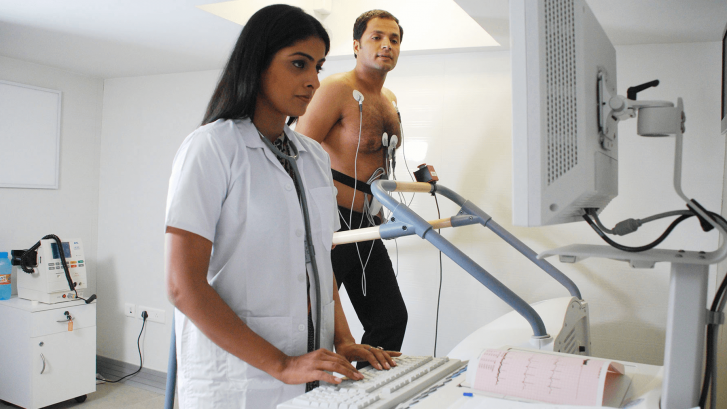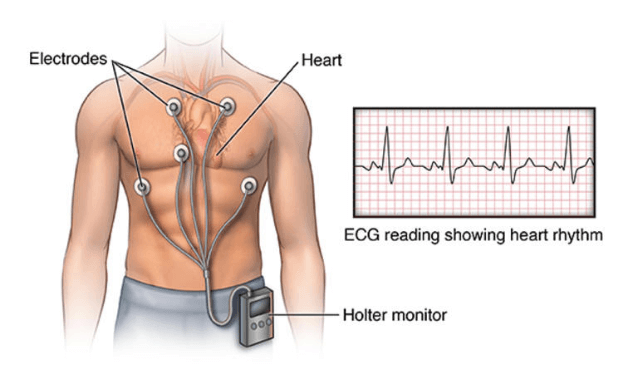Understanding TMT
What Does it Refer To?
TMT or Tread Mill Test, also known as cardiac stress test, is a cardiological test undertaken to determine the result of physical stress on the heart. The test is performed by a trained physician to see how the heart responds when the person is made to exercise in a controlled clinical environment.
This test is carried out to mainly detect the presence of coronary artery disease in humans. During a TMT checkup in Jaipur Heart and Multispeciality Centre, the electrocardiogram, blood pressure and heart rate are among the main aspects of the patient that get monitored.
What Happens During the Test?
Before beginning the test, 10 small areas on the chest of the patient are cleaned and electrodes are attached to these areas. These electrodes further remain attached to an electrocardiogram monitor. The heart rate and the blood pressureare monitoredwhen the patient is at rest. Next, the patient is asked to either walk on a treadmill or pedal a stationary bike, the difficulty of which is gradually increased. The exercise may continue for 10-12 minutes.
In case of a nuclear stress test, a radioactive medication is delivered into the patient’s body using an IV drip.
In a treadmill test, the normal arteries supplying blood to the heart dilate thus causing an increased flow of blood. But if the arteries have any sort of blockage, the blood supplied to the heart is low which starve the muscle leading to symptoms like shortness of breath or discomfort in the chest.
When is the Test Done?
The test may be advised to a patient in the following cases –
- Fatigue, chest pain or breathless when walking or running
- Have suffered a heart attack
- Above 40 years of age
- A chain smoker
- Have a family history of CAD
- To develop a safer exercise program
Since a TMT checkup in Jaipur Heart and Multispeciality Centre is quick and low cost, it can be very advantageous for the patients. The appointment generally lasts for an hour or so and the results are handed out to the patient on the same day of the test. Before beginning the test, patients must discuss their medical history with the physician, for instance if he/she is suffering from asthma or diabetes, so that the physician is in the know-how about such existing ailments while undertaking TMT.











